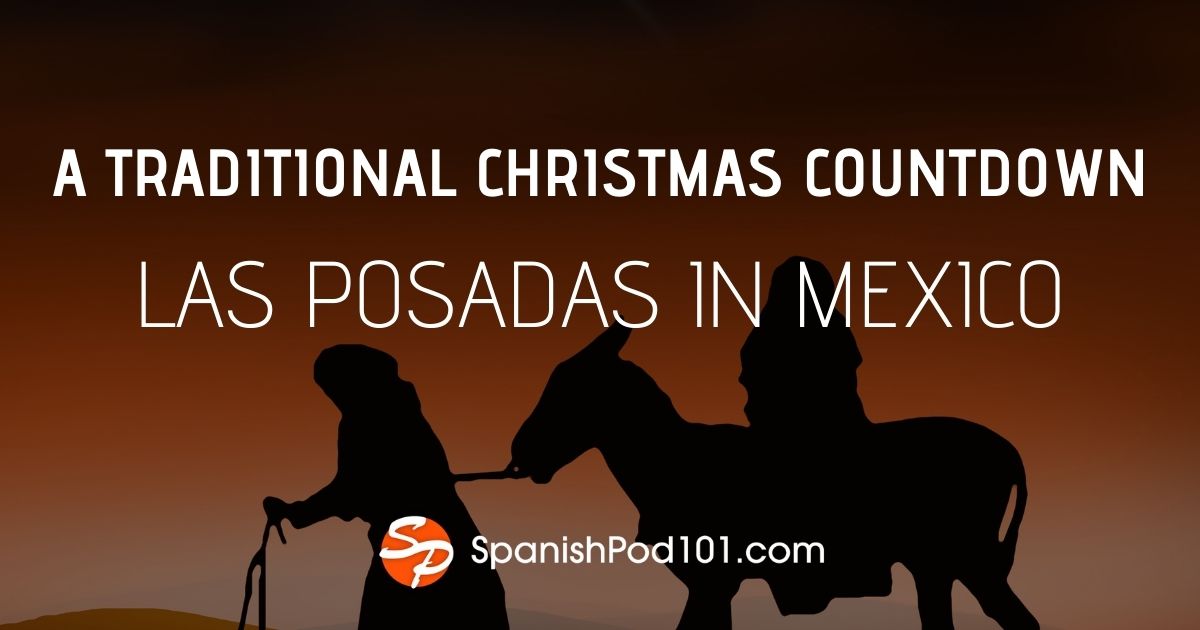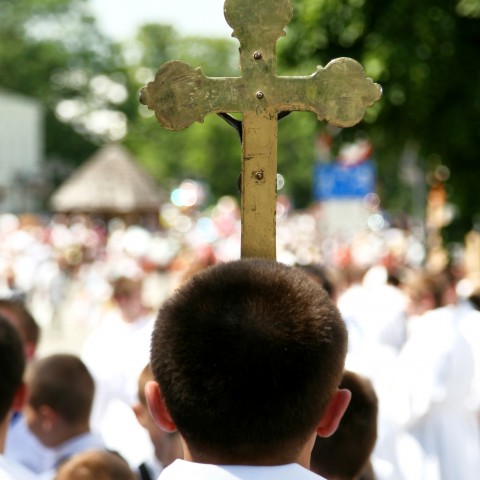
Can you believe it’s almost Christmas? It’s the time of year when the cold of winter culminates to a time of warmth, joy, and compassion.
Did you know that in Mexico, there’s an entire nine-night festival leading up to Christmas?
In this article, you’ll learn about the Las Posadas holiday, how it got started, and more fun Las Posadas facts.
Are you ready?

1. What is Las Posadas?

Each year, Mexicans observe the Las Posadas festival from December 16 to December 24. For these nueve noches (“nine nights”), Mexicans commemorate the journey of Mary and Joseph, the parents of Jesus.
This long holiday, leading up to Navidad (“Christmas”), first came to Mexico in the year 1586. Prior to this, the indigenous people celebrated a pagan holiday for the winter solstice. According to their beliefs, one of their major deities—Huitzilopochtli—was celebrated in the month of December.
Once Christmas celebrations took root in Mexico, they integrated quite well into the Mexican culture. In fact, Spanish missionaries took advantage of the similarities between the holidays to give the Mexicans a Christian holiday that melded with the traditional Mexican beliefs.
- → Are you in the Christmas spirit? Then check out our list of the Must-Know Christmas Day Vocabulary!
→ Also make sure you know these Top 15 Words for Winter Snow Days to make the most of the next few months. 😉
2. How is Las Posadas Celebrated?

There are several Las Posadas holiday traditions, the most important of which is the procesión (“procession”) depicting Mary and Joseph’s journey. This procession takes place each of the nine nights during the festival, and generally takes one of two forms.
In one form, two people will act out the roles of Mary and Joseph. They walk around a house or garden, led by a small procession carrying candles. Upon knocking on the door of the house, a song is sung and the two are allowed to enter the home (along with their procession).
In the other form, one half of the group acts as the procession while the other half acts as the innkeepers. Those in the procession, rather than dressing up in costumes, will carry images of Mary and Joseph with them as they walk around the house. The “innkeepers” will be waiting inside the house and let the procession inside once the song is sung.
Upon entering the posada (“lodging”), the group will first pray and engage in other religious activities. Afterwards, the real party begins! There’s a lot of great food and drinks to be enjoyed, as well as Las Posadas songs to be sung.
Popular Las Posadas foods include tamales, pambazos, and the favorite holiday drinks atole and a hot punch with a touch of alcohol. Of course, one can expect to find an array of treats, including churros, Christmas cookies, and hot chocolate. Children look forward to each night of Las Posadas just as much as the adults! Every night, they break open a piñata (“piñata”) and get to indulge in lots of caramelo (“candy”) and other sweets.
People may also sing villancicos (“Christmas carols”) and put on a Christmas obra (“play”), considering the festival’s close proximity to Christmas.
- → See our vocabulary list of popular Mexican Foods to learn the names of other dishes you might encounter on Las Posadas!
3. Come in, Holy Pilgrims…

The singing of the holiday song Pidiendo Posada during the procession is one of the most iconic Las Posadas traditions. Do you know what the lyrics are?
Well, there are many stanzas to the song, but the most important is:
“…I am a carpenter by the name Joseph…my wife is Maria…and of the Divine Word she is going to be a mother.”
Once the door opens, the innkeepers say:
“Come in holy pilgrims, pilgrims, and receive this little corner. For although poor the abode, poor the abode, I give it to you with my heart.”
4. Essential Vocabulary for Las Posadas

Let’s review some of the vocabulary words from this article!
- Caramelo – “Candy” [noun, masculine]
- Navidad – “Christmas” [proper noun, feminine]
- Cantar – “Sing” [verb]
- Piñata – “Piñata” [noun, feminine]
- Posada – “Lodging” [noun, feminine]
- Nueve noches – “Nine nights”
- Villancico – “Christmas carol” [noun, masculine]
- Procesión – “Procession” [noun, feminine]
- Obra – “Play” [noun, feminine]
- Tradición – “Tradition” [noun, feminine]
Remember that you can hear the pronunciation of each word on our Las Posadas vocabulary list.
Final Thoughts
Las Posadas is a fun traditional holiday that characterizes both the religious nature of many Mexicans and the pagan traditions of times past. Infuse these characteristics with the joys of Christmas, family, and Mexican food, and you have a festive season not to be missed!
If you enjoyed this article and would like to learn more about Mexican culture or the Spanish language, SpanishPod101.com has several blog posts we think you’ll like:
- Día de la Candelaria: How to Celebrate Candlemas in Mexico
- Día de la Bandera: Celebrating Mexican Flag Day
- Día del Trabajo: Celebrating Labor Day in Mexico
- A Hero’s Cry: Mexican Independence Day
- Ultimate Guide of Untranslatable Spanish Words
Have you been loving our blog? Then you’ll definitely enjoy going through our vast library of Spanish lessons. All you have to do is create your free lifetime account to get started! This will give you access to fun and accessible lessons on a variety of topics, taught by native Spanish speakers. What are you waiting for?
Good luck with your Spanish, and Happy Las Posadas!










